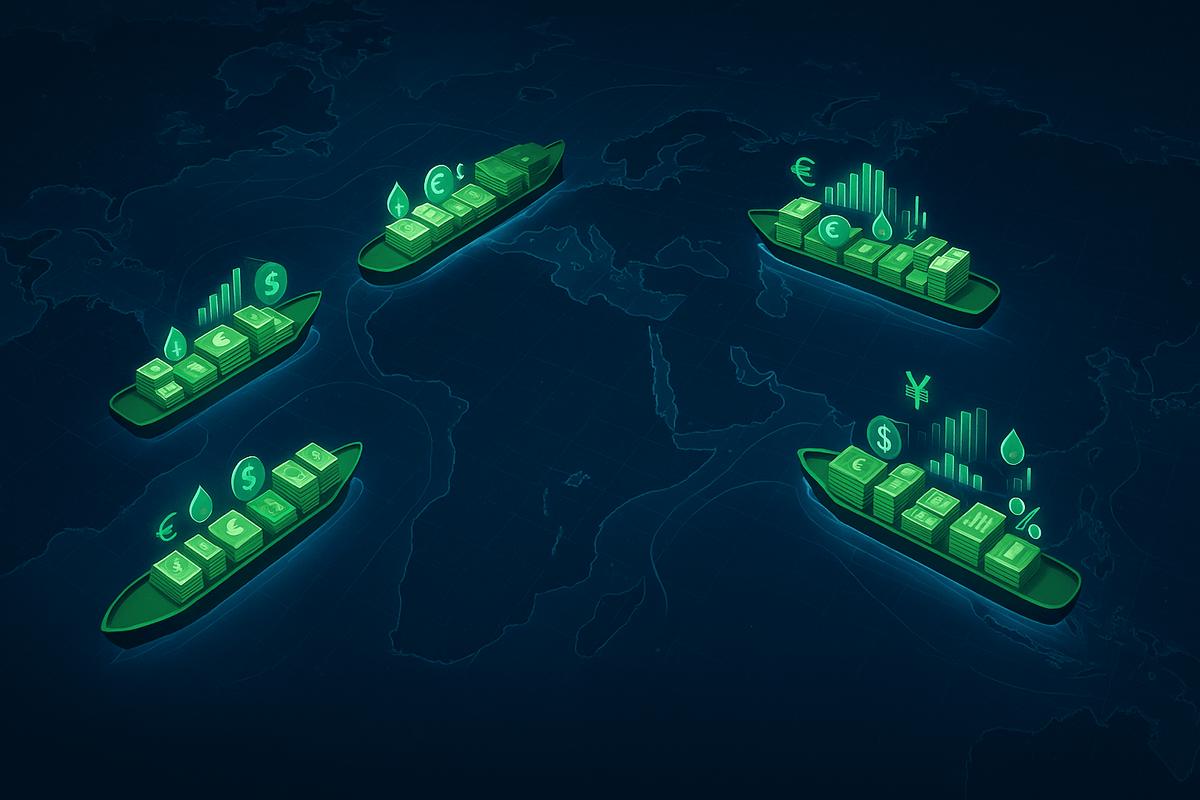Shipowners push for financial backing, GCMD-BCG survey finds
At least 86 shipowners view financial support as critical to accelerating the shift to low-emission fuels, a new industry survey shows.
 IMAGE: Illustration showing shipping's green fuel transition. ENGINE via ChatGPT
IMAGE: Illustration showing shipping's green fuel transition. ENGINE via ChatGPT
The joint survey was conducted by the Singapore-based non-profit Global Centre for Maritime Decarbonisation (GCMD) and US-based Boston Consulting Group (BCG).
Respondents included 114 shipowners and operators “across a range of vessel types, fleet sizes and regions,” GCMD said. Around 75% of them prioritised either compliance measures or financial incentives as the most important policy tools.
Alternative fuels such as methanol, ammonia and methane-based options are typically priced at a premium compared to conventional marine fuels. Additionally, these fuels require tailored onboard infrastructure, which further increases both capital and operational costs. This high capital and operational cost burden can potentially deter shipowners with limited resources from adopting such fuels.
However, the survey's findings note that financial incentives could help bridge this gap.
Respondents identified blended finance, combining government incentives with private-sector mechanisms like pay-as-you-save (PAYS), as a potential solution.
Pay-as-you-save approach
The pay-as-you-save is a financial model where an investor can theoretically cover the upfront cost of an upgrade, and the user can repay the investment over time. Repayments can be made using savings generated over time or passed on to customers through green premiums, according to the World Economic Forum.
This spreads cost and risk across the value chain rather than placing the full burden on the shipowner, GCMD highlighted in a report last year.
Insufficient Capital
The survey also underscored the lack of investment in port infrastructure as a critical bottleneck.
Respondents called for closer collaboration between ports and shipping companies to coordinate demand forecasts or offer demand guarantees. These measures would give ports the confidence to invest in alternative fuel bunkering infrastructure.
But any such co-ordination must be structured in compliance with antitrust laws to avoid distorting competition, the study added.
More than 70% of respondents said the availability of financial incentives has remained largely unchanged since 2022, underlining the need for stronger policy support and investment momentum.
The findings echo a recent call by IMO Secretary-General Arsenio Dominguez, who urged governments and financiers to step up support for green fuel supply chains to meet 2030 climate targets.
By Konica Bhatt
Please get in touch with comments or additional info to news@engine.online






